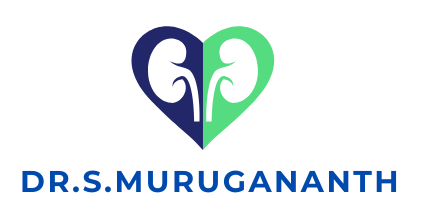“Everybody’s going to have some degree of health problems, as we get older. I think we’ve gotta maintain.”
— Tom Hanks
A Real-World Reminder
It was 6 p.m. and I was ready to leave the hospital when I received a call from the emergency department.
“Sir, we have an elderly gentleman who hasn’t passed urine since morning. He’s in severe lower abdominal pain.”
I rushed to the ER.
A man in his seventies lay on the bed, visibly distressed. A quick examination confirmed what I suspected — his bladder was overdistended. We inserted a catheter, and nearly 1.5 litres of urine drained out. His relief was immediate.
He was accompanied by his son, and as we spoke, I learned the patient had been struggling with urinary symptoms for three months — but had said nothing.
This is not uncommon. Many older adults quietly adjust to declining urinary health, often mistaking it for normal ageing.
Why Kidney and Urinary Issues Rise With Age
As we age, multiple changes affect the kidneys and urinary system:
-
Renal function declines naturally with age
-
Chronic illnesses like diabetes and hypertension accelerate kidney damage
-
In men, prostate enlargement can lead to urinary blockage
-
Urinary incontinence becomes more common due to nerve dysfunction and weakened bladder muscles
👉 Without proactive care, these issues can suddenly escalate into emergencies — especially when the elderly are living alone.
Prostate Enlargement: The Silent Disruptor in Men
One of the most common age-related urinary issues in men is benign prostate enlargement.
The prostate, a walnut-sized gland, encircles the urethra and tends to grow with age.
-
More than 50% of men over 60 may have some degree of prostate enlargement.
🚨 Common Symptoms
-
Weak urinary stream
-
Frequent urination, especially at night
-
Incomplete bladder emptying
-
Dribbling of urine
-
Delay in starting urination
👉 Many men ignore these symptoms or assume it’s just “getting old.” Don’t let your loved ones fall into that trap.
✅ Simple Remedies & Tips
-
Avoid excess fluids before bedtime
-
Cut down on caffeine, alcohol, and spicy foods
-
Try double voiding: wait and try urinating again a few minutes after the first attempt
When Is Treatment Needed?
-
If symptoms worsen or don’t improve with lifestyle changes
-
Evidence of urinary stasis (stagnation), infections, or kidney issues
-
Medications can shrink or relax the prostate
-
In some cases, surgery may be needed
⚠️ Important: Prostate enlargement is not the same as prostate cancer, but regular PSA tests after age 40 help screen for cancer early.
Other Kidney and Urinary Issues in the Elderly
1. Urinary Incontinence
Unintentional leakage of urine or urgency can arise due to aging nerves and bladder dysfunction. Though common, it shouldn’t be dismissed.
Management:
-
Avoid liquids 2–3 hours before bedtime
-
Limit triggers like caffeine, alcohol, acidic foods
-
Manage diabetes and blood sugar
-
Medications and, rarely, surgery can help
If You’re Living Away From Your Parents
Here’s how you can still keep a close watch on your parents’ kidney and urinary health:
1. Create a Health Checklist
-
Schedule annual check-ups with blood and urine tests
-
Include serum creatinine, urinalysis, PSA (for men)
-
Ensure they do renal ultrasounds if urinary symptoms appear
2. Be Medication Aware
-
Many elderly patients are on multiple drugs
-
Some painkillers, antibiotics, or BP medications can affect kidney function more significantly in older adults
3. Have Health Conversations Often
-
Gently ask about urinary issues, swelling, fatigue, or changes in urination
-
Encourage openness about symptoms they may feel shy to disclose
📞 4. Involve Local Support
-
Connect with a local doctor or a trusted caregiver
-
Use telehealth services for follow-ups
Final Reminder
Caring for ageing parents from a far can feel overwhelming. But with proactive monitoring, regular testing, and open conversations, you can prevent many emergencies — like the one I faced that evening in the ER.
“Always remember: elders are more prone to kidney insult. Early intervention is better.”
